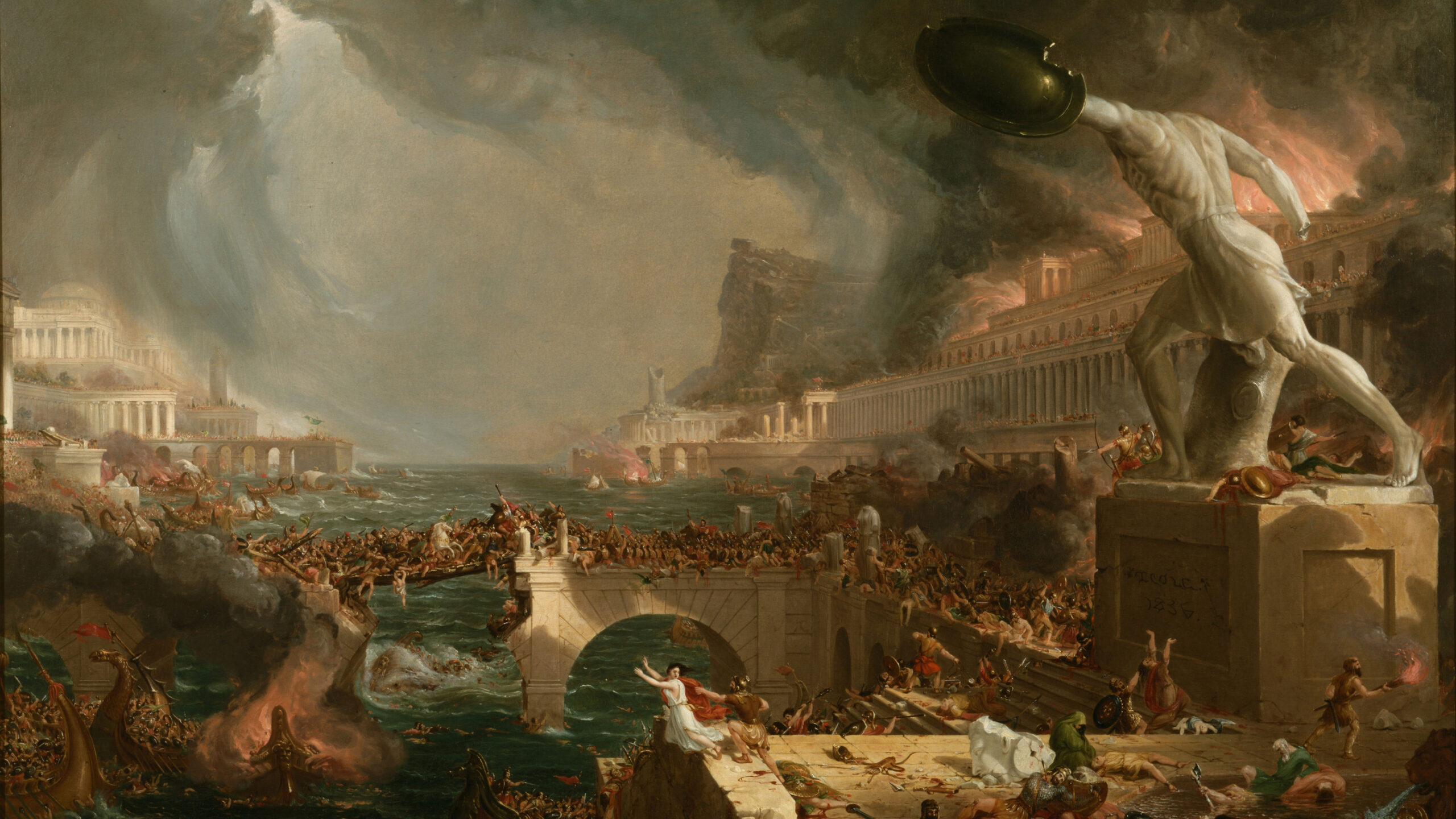Few subjects have been more debated than the reasons for the long decline of the Roman Empire. The celebrated eighteenth-century historian Edward Gibbon blamed Christianity, charging that it destroyed the civic spirit of the Romans by turning their attention to the afterlife and away from their duties to the state. Michael Rostovtzeff, a Russian scholar who wrote in the 1920s and 1930s, attributed the decline in part to the constant pressure by the underprivileged masses to share in the wealth of their rulers, of which there was not enough to go around anyhow.
Others have emphasized the influx of Greeks and orientals into Roman society, intimating that the original Roman sense of unity was thus diluted. Still others have pointed to climatic change and disease. Most recently, archaeologists working with chemical analyses of skeletons from A.D. 79 have concluded that a generally healthy people had fallen prey to chronic lead poisoning, for Roman food and wine were apparently heavily contaminated with lead.
Economically, losses in population caused by plagues and civil war crippled an agriculture already hampered by unprogressive methods and increased soil exhaustion. The growing concentration of land in large estates and the absorption of free farmers into the status of coloni diluted Roman prosperity. The urban middle class was declining, while the masses became alienated from their rulers. The replacement of citizen-soldiers with mercenaries testified to the decline of the old Roman patriotism.
Dependence on slavery may have retarded innovation in labor organization and the application of technology. Yet even with all these factors, it would be hard to imagine the Roman decline without terrific pressure from outside forces. It was in the third and fourth centuries that the “barbarian” cultures began to expand, and it was the barbarian threat that most immediately contributed to the collapse of the Roman structure in the West.
The scholar Henri Pirenne argued that Rome was not destroyed by invaders since these cultures adapted to the Roman culture. Rather, Rome decayed in the face of the Arabs, who diverted the Carolingians away to the north, after which a long siege weakened Rome economically and politically. The whole of Europe emerged from this siege in the mid-tenth century, by which time ruling families other than Carolingian had displaced traditional military and political authority.
Goods that the West had imported from the East no longer played a role in politics. More recent research argues that this trade was already in decline well before the rise of the caliphs and suggests that over-taxation, plagues, internal migration, and relocation of settlements from the plains to the hilltops were far more disruptive than any Arab activity.
Given all these arguable “causes” for the decline of the Roman Empire, perhaps the best summary is still Gibbon’s famous judgment: “The stupendous fabric yielded to the pressure of its own weight.” Rather than asking why the Empire fell, he thought, historians ought to ask why it had survived so long.

